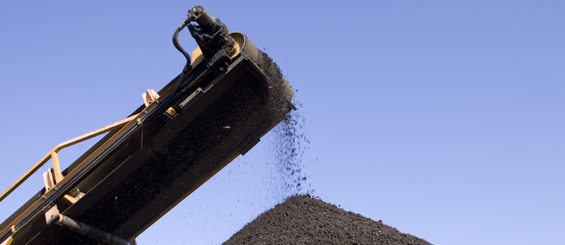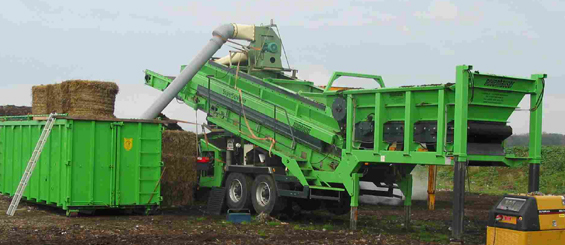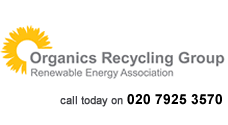Adverts
On 17th March the Commission announced its finalised redraft of the EC Fertilisers Regulation (see our news story here and further information section below) and in early April invited stakeholders to return comments on this document and their accompanying impact assessment document.
Key aspects of the redrafted regulation relevant to making products from biodegradable wastes and energy crops
The redrafted regulation includes rules on converting source separated biowastes and other suitable materials into compost and digestate 'component materials' that, after meeting specified quality requirements, can be used as or in some of the product types listed below. Minimum quality and labelling requirements are also set for each of the product types. Manufacturers have to check that their products meet the relevant requirements before affixing the CE-mark1 that allows them to be traded freely within the EU single market.
The manufacturer must operate a quality system if producing digestate made from inputs that aren't exclusively energy crops or if producing compost. He/she must 'operate an approved quality system for production, final product inspection and testing of the products concerned...' and an accredited, 'notified body' must check the manufacturer's compliance with all relevant requirements and, at specified frequencies, take samples of the compost and digestate 'component material' types described and send them for laboratory analysis.
Product types and forms
- Organic fertilisers - solid and liquid forms *
- Organo-mineral fertilisers - solid and liquid forms ^
- Inorganic macronutrient fertilisers - solid and liquid forms
- Liming materials - probably solid forms only
- Organic soil improvers - solid forms only *
- Inorganic soil improvers - probably solid forms only
- Growing media - probably solid forms only ^
- Agronomic additives - probably solid forms only
- Plant biostimulants - unclear which forms are acceptable; solid only, liquid only or both forms
- Fertilising product blend* - solid and liquid forms
* A mixture of one or more of the product types above, where each product type has already complied with the quality criteria applicable to it.
The symbol + against a product type means that it can consist of compost or digestate that is made from suitable input materials, where its quality is adequate.
The symbol ^ against a product type means that it can partially contain compost or digestate that is made from suitable input materials, where its quality is adequate.
Input materials
Input materials proposed for composts and digestates used as or in CE marked products within the scope of the revised EC Fertilisers Regulation are;
- source separated biowastes (as defined in the revised Framework Directive on Waste),
- category 2 and 3 animal by-products (according to Regulation (EC) No 1069/2009),
- living or dead organisms which are unprocessed or processed only in specified ways,
- additives necessary for improving process performance or its environmental performance (subject to various caveats), and
- energy crops in the case of anaerobic digestion,
- any of these materials which have previously been composted or digested but only if each of them contain no more than 6 mg/kg dry matter of sixteen types of polyaromatic hydrocarbons.
The following materials are not allowed to be fed into the composting or digestion processes:
⢠the organic fraction of mixed municipal household waste separated through mechanical, physico-chemical, biological and/or manual treatment,
⢠sewage sludge, industrial sludge or dredging sludge, and
⢠animal by-products of category 1 according to Regulation (EC) No 1069/2009.
REA's concerns
Having reviewed the redrafted EC Fertilisers Regulation and its annexes the REA's concerns are as follows:
- time-temperature options for minimum treatment of the eligible input materials do not cover the full extent of commercial practices in the UK;
- where input materials include animal by-products, options for minimum digestion they do not include pasteurisation operated under conditions other than 70 oC for 1 hour;
- the three minimum treatment options for composting mean that minimum temperatures approved by the ABP competent authority could be used in practice for compliance with the revised EC Fertilisers Regulation (i.e. 70 oC or a different temperature validated under EC ABP Regulation 142/2011's 'Alternative Transformation Parameters' rules) but the proposal's minimum time options are notably longer than what is required for standard treatment under EC ABP Regulation 142/2011 (i.e. 1 hour at the minimum temperature of 70 oC).
- the Commission has recently said that for ABP-derived products that comply with all relevant aspects of the proposed EC Fertilisers Regulation, their exact exit point from the requirements of EC Animal By-Products Regulations is not yet clear;
- the maximum level of biuret allowed in organic fertilisers is unecessary and difficult to impact assess because we currently have no data on their concentrations in UK produced composts and digestates;
- the maximum level of hexavalent chromium allowed in organic fertilisers, organo-mineral fertilisers, organic soil improvers and growing media is difficult to impact assess because we currently have no data on their concentrations in UK produced composts and digestates;
- maximum levels of physical contaminants applicable to solid digestates (made from inputs that arenâÂÂt exclusively energy crops) and composts are too high;
- maximum levels of physical contaminants applicable to liquid digestates made from inputs that arenâÂÂt exclusively energy crops are set on a % w/w in dry matter basis and this should be reconsidered before finalising the revised regulation; and
- minimum organic carbon and nutrient requirements in relevant product categories mean that:
- UK separated liquid digestates will not qualify as liquid organic fertilisers,
- it may be difficult to achieve liquid organo-mineral fertiliser products that contain a significant proportion of UK liquid digestate,
- UK separated solid digestates will not qualify as solid organic fertilisers and only a low proportion of them will qualify as solid organic soil improvers and provide enough organic carbon to be the organic part of an organo-mineral fertiliser product, and
- no UK composts will qualify as solid organic fertilisers.
- UK separated solid digestates will not qualify as solid organic fertilisers and only a low proportion of them will qualify as solid organic soil improvers and provide enough organic carbon to be the organic part of an organo-mineral fertiliser product, and
- no UK composts will qualify as solid organic fertilisers.
Choice
Being aware of industry concerns, the existence of relevant national End of Waste rules in some Member States, and the very local nature of certain product markets, the Commission has aimed to propose that manufacturers of products derived from controlled wastes are allowed to choose between:
- complying with the revised EC Fertilisers Regulation, CE marking their product and placing it on the EU single market, or
- complying with national End of Waste rules, using the relevant certification mark in product labelling, and placing it only on the national market.
However, there are concerns that the CommissionâÂÂs proposal, in conjunction with proposed amendments to the Framework Directive on Waste, actually means that national EoW rules with the same scope will have to be withdrawn. UK government has raised this issue with European contacts a number of times and is seeking to ensure that our relevant national EoW rules are not swept aside.
N.B.: The revised EC Fertilisers Regulation will NOT be applicable to waste-derived composts and digestates that are supplied and used under waste regulatory controls.
Consultees' comments
The REA's comments on the redrafted regulation have been submitted to the Commission and we have contributed to the European Biogas Association's and European Compost Network's responses. Comments made by other organisations can be found HERE.
Feedback to Defra
The UK government is participating in meetings of the European CouncilâÂÂs Technical Harmonisation Group, and these will be on-going for a while. Defra has recently held a meeting with industry representatives and invited them to provide views and supporting evidence in writing. Defra will use this feedback when impact assessing the CommissionâÂÂs proposal and industry views may influence UK government views that are discussed at the THG meetings. The REA is providing written feedback to Defra.
Remaining legislative process
The Council of the European Union has started discussing the proposal and a similar process will soon begin in the European Parliament. Under this co-decision procedure, the Council and Parliament aim to agree a final version of the regulation that will replace the current one. Once adopted, the new regulation will be binding in its entirety and directly applicable in all Member States. The CommissionâÂÂs proposed regulation includes that it will apply from 1 January 2018.
Further information
Factsheet which includes summary of the proposalâÂÂs main elements.
Annex to the draft regulation: this document contains criteria applicable to composting, anaerobic digestion, product quality and labelling requirements.
Table of criteria: composting, digestion and product quality. Compiled by REA, reflecting relevant content from the draft regulation's annex.
Contact at REA: Emily Nichols (emily@r-e-a.net, 07771 556231).
Footnotes
1 CE Marking on a product is a manufacturer's declaration that the product complies with the essential requirements of the relevant European health, safety and environmental protection legislation. The letters "CE" are the abbreviation of French phrase "Conformité Européene" which literally means "European Conformity".
2 In England, Wales and Northern Ireland national EoW rules for waste-derived composts are set out in PAS 100 and the Compost Quality Protocol, its requirements including compliance with PAS 100:2011. In Scotland national EoW rules for waste-derived digestates are set out in its position statement âÂÂClassification of Outputs from Anaerobic Digestion Processesâ (June 2014), its requirements including compliance with PAS 110:2014. This countryâÂÂs national EoW rules for waste-derived composts are set out in its Composting Position (September 2004), its requirements including compliance with PAS 100 (the latest edition).
This article last updated: 02/06/2016.
visitor comments
Members' Area
Become a Member!
Join the Organics Recycling Group at the Renewable Energy Association by clicking below.
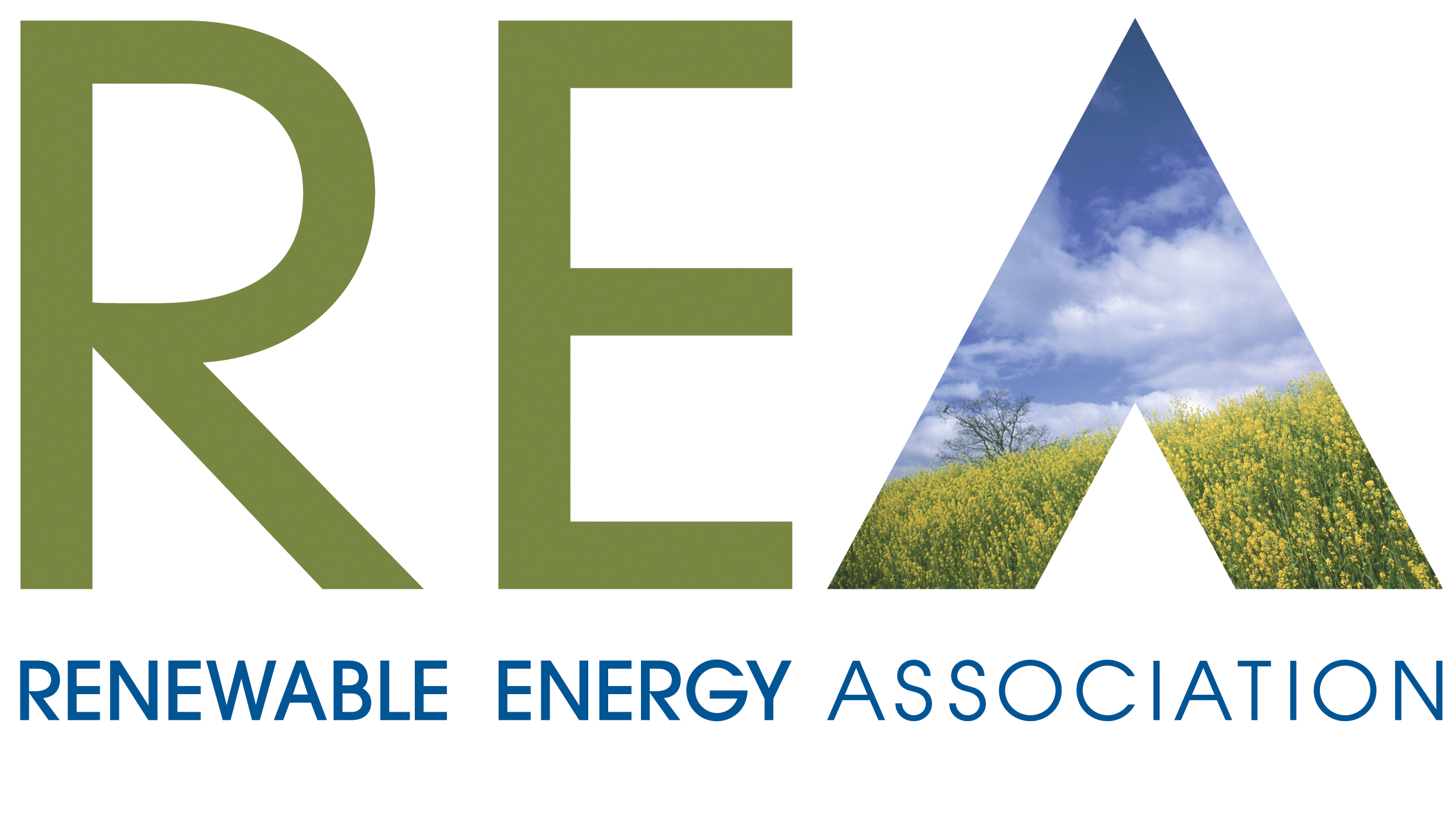



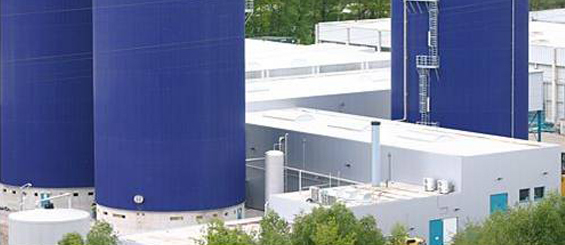
.jpg)
